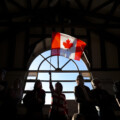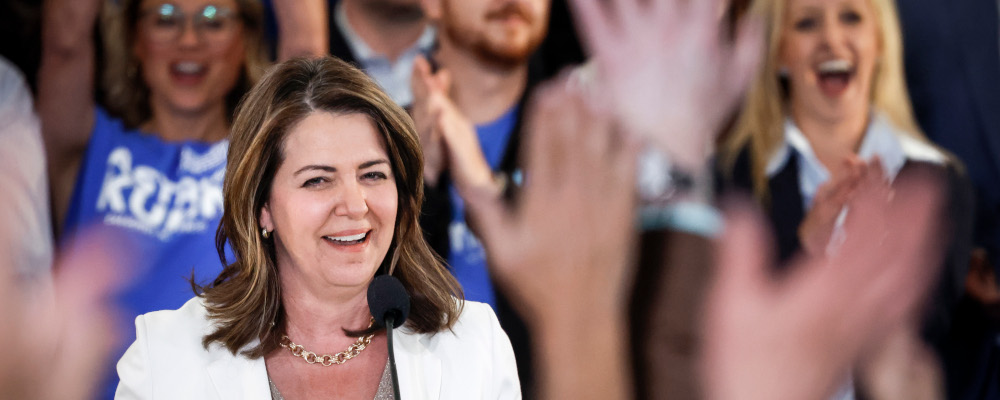As The Hub’s editor-in-chief Stuart Thomson reported on the Alberta election, there’s been a sense that the province’s politics in general and the campaign in particular has been marked by a high degree of polarization. If politics most elsewhere in the country is fought between the 40-yard lines, recent years in Alberta have felt like the political divide increasingly extends across the whole field.
There are various factors behind these sentiments. The pandemic is a big part of the story. So is the oversized role of alternative media in the province. And the overrepresentation of fringe voices on the Left and the Right.
But even if polarization is somewhat exaggerated, there are still some clear policy delineations between the two major parties. The biggest—and the reason to ultimately be satisfied with the election outcome—is the United Conservative Party will continue to support the expansion of charter schools in the province. The Alberta NDP would not.
Alberta is the only province to permit charter schools. It’s a huge advantage for Albertan families. Charter schools enable greater choice, pedagogical innovation, and a better targeting of student needs and family preferences. They effectively serve as a safety valve for thousands of children for whom the conventional public school model doesn’t quite work for whatever reason. A large body of research in the United States in fact shows that charter schools are particularly effective at educating students disadvantaged by poverty, minority status, poor baseline academic performance, and low parental education.
The UCP government, under former Premier Jason Kenney, pursued an ambitious reform agenda to expand and better support charter schools. It started by eliminating the province’s legislative cap on the number of charter schools in 2019 and then followed by streamlining the process for new charter school applications in 2020 and boosting funding for charter schools in the provincial budget. Kenney’s successor, Danielle Smith, has sustained these reforms during under her tenure.
They’ve contributed to a growing number of charter schools—including the Alberta Classical Academy which opened its doors to students in Calgary in 2022-23 and intends to open an Edmonton offshoot next year—in the province. Progress however has still not kept up with growing student demand. As Cardus scholar Catharine Kavanaugh recently observed for The Hub, the waitlist for Alberta’s charter schools is now roughly double its total enrolment.
Yet the NDP and its adjacent groups have opposed the expansion of charter schools. Party leader Rachel Notley even signaled during the campaign that not only would an NDP government halt the expansion but it might actually reverse some of the recent gains—including possibly reducing funding for charter schools.
This is a clear case of polarization rooted in a combination of competing conceptions of public goods, the relative influence of public sector unions, and differing views about markets, competition, and the perverse consequences of state monopolies. The facts have effectively become subordinated to progressive intuitions and stakeholder politics.
Smith’s own impulsive leadership nevertheless led to a debate among conservatives about the upsides and downsides of her government’s re-election. Some long-time conservatives even opted to stay home.

I understand to a certain extent these reservations. I wrote last year that Kenney’s ouster was a lamentable political outcome. I still think so.
But politics isn’t a utopian endeavour. It’s often an exercise in the second best. In that sense, the preservation of Alberta’s advantage with respect to charter schools is an affirmative reason to support the UCP’s re-election. It’s a big deal. Another four-year mandate will provide the Smith government with ample opportunity to not only blow through the old cap but to create the conditions for more charter schools to flourish on a stable and secure basis.
I interviewed Kenney in his final days as premier and we talked about his government’s progress on charter schools. He said:
We now have five new charter schools starting in the province. We have a STEM Charter Academy. We have a classical academy…I would like to see not five charter schools. I’d like to see 50 new charter schools. And the momentum is starting.
The election result will enable that momentum to continue to build. A different one would have threatened it. That ought to be sufficient reason for the premier’s conservative critics to be satisfied with the outcome and wish the re-elected Smith government the best of luck as it embarks on its renewed mandate.
Recommended for You

‘A celebration of the spirit of Alberta’: Ryan Hastman on the political, economic, and cultural importance of the Calgary Stampede

‘Can we actually be an independent country?’: Michael Ignatieff on the 60th anniversary of Lament for a Nation

Fred DeLorey: Why the NDP may be in even bigger trouble than we think

Michael Geist: Children accessing porn is a problem, but government-approved age verification technologies are not the answer




